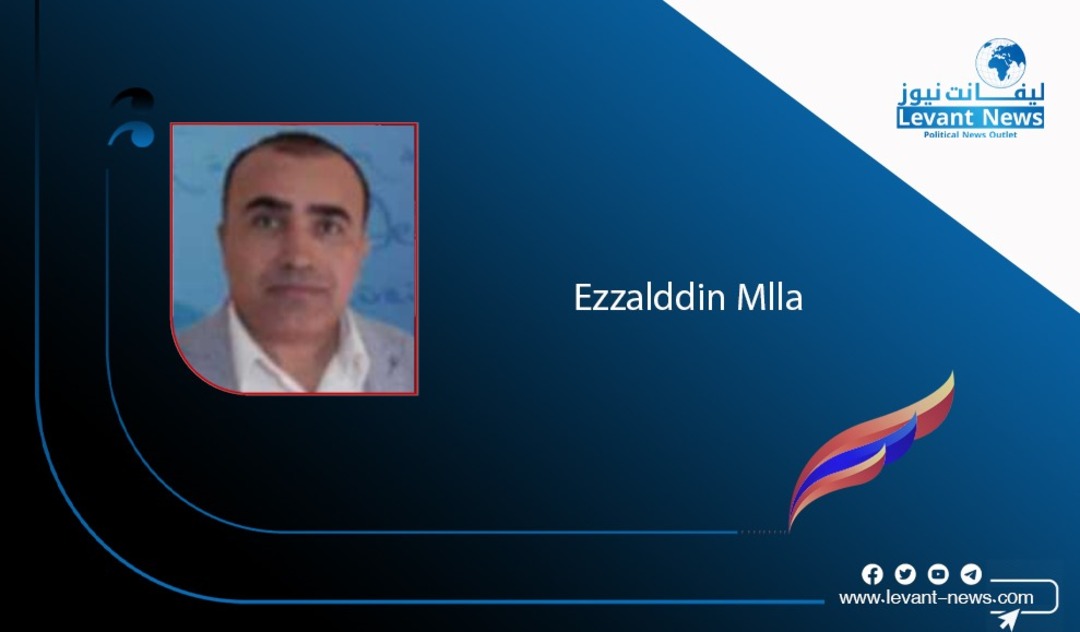-
The Kurds in Western Kurdistan and the Negotiation Bet

Over the past decade, Syria has witnessed profound transformations that have radically altered its political and social landscape. These changes led to the disintegration of state structures and the loss of control over large parts of its territory. Following the fall of the regime that ruled the country for decades, many anticipated a new era of peace and stability. However, Syria entered into an even deeper crisis, with the conflict becoming increasingly complex and turning into a theater of multi-dimensional struggles among regional and international powers, each pursuing its own interests at the expense of national unity and the future of its people. The Syrian crisis has gone beyond a mere internal conflict; it has become a battleground for regional and global accounts, exacerbating tensions and increasing divisions along sectarian, ethnic, and geographic lines that threaten all hope for national unity.
Amid this complicated conflict, the Syrian people have borne the brunt of accumulated crises; wars have destroyed societal fabric, creating unprecedented humanitarian crises of internal and external displacement, coupled with economic collapse and deteriorating basic services. Today, Syrians live in a state of anxiety and anticipation, fearing that the transitional phase may turn into another conflict that deepens their suffering and deprives them of the chance to live in a safe and stable country. The fragile state institutions and the absence of mutual trust among different actors make the path toward peace riddled with obstacles, especially amid a severe economic crisis threatening social stability and increasing the likelihood of explosion.
In this context, the Kurds are a fundamental and integral part of Syria’s national fabric, yet they face one of the harshest phases of marginalization and political, social, and cultural exclusion in modern Syrian history. Their suffering is not merely a product of current circumstances; it is an extension of long-term policies aimed at denying their identity and depriving them of their basic rights. The Kurds have been marginalized through the exclusion of political representation, prevented from expressing their culture and language in schools and media, and deprived of social and economic rights. Despite constituting a significant portion of the population, they have suffered from profound isolation. This marginalization has not deterred them from demanding their rights; instead, it has motivated them to organize politically and strive to establish entities that represent them clearly, foremost among them the Kurdish National Council, which seeks to unify efforts internally and represent them externally.
Today, the Kurdish National Council is the official platform expressing the Kurdish Syrians’ aspirations for rights and political participation. However, it faces severe challenges, including significant internal diversity within the Kurdish movement, differing visions and strategies, and the complexities of negotiating with other Syrian forces amid regional and international dynamics. Diplomatic dialogue appears unavoidable under these circumstances, as it offers a pathway to find peaceful solutions that achieve tangible political and social gains, far from the ongoing armed conflict that drains resources and worsens civilian suffering.
The Kobani Conference, held on April 26, marks a pivotal milestone in the history of Kurds in Western Kurdistan. It brought together various factions of the Kurdish movement around a unified vision that transcends disagreements to establish a cohesive negotiating stance with the transitional authority in Damascus. This vision does not only focus on political demands but also emphasizes protecting cultural identity and securing economic and social rights, thereby forming a comprehensive framework that reflects the aspirations of the Kurds for Syria’s future. This integration of political, cultural, and economic aspects demonstrates a deep understanding that true peace cannot be achieved without full recognition of diversity and the development of understandings that promote justice.
The Kurdish issue in Syria cannot be discussed independently of regional influences, where neighboring countries play a vital role in shaping the future of the Kurds. For example, Turkey views the Kurdish presence in Syria with suspicion and perceives it as a threat to its national security, complicating any comprehensive internal solution. Meanwhile, several international powers exploit the Kurdish issue in their geopolitical conflicts, making it necessary for the Kurdish movement to pursue a wise and balanced foreign policy that safeguards its interests and opens new horizons within regional and international circles.
Achieving stability in Syria, especially given its diverse ethnic, sectarian, and religious composition, requires building a state founded on principles of justice and equality, without excluding any party. Any political solution that sidelines or diminishes the rights of the Kurds will only threaten the entire political process, as lasting and comprehensive peace can only be realized through the participation of all components in decision-making, establishing democratic institutions that respect human rights, and providing equal opportunities for development and a decent life.
The transitional phase Syria is experiencing today presents a rare historical opportunity to end years of bloody conflict and begin a new era of unity and coexistence. However, this opportunity will only bear fruit if it is wisely exploited and accompanied by genuine political will to resolve unresolved issues, especially the Kurdish question, which is a cornerstone of stability. Political and diplomatic dialogue, based on the vision of the Kobani Conference, is an ideal path to establish foundations of mutual understanding for Syria’s future. The homeland needs a unified vision where all components are embraced, diversity.
Azaldin Molla
Tags
You May Also Like
Popular Posts
Caricature
opinion
Report
ads
Newsletter
Subscribe to our mailing list to get the new updates!




















